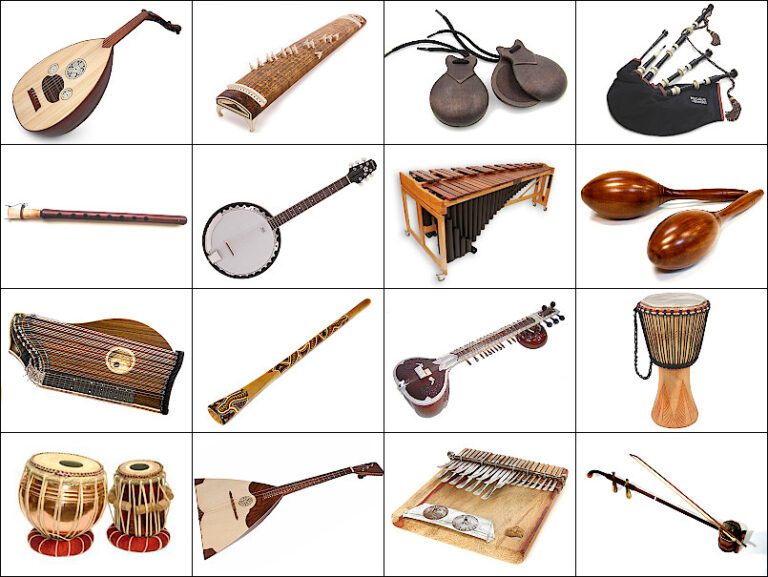Musical Instrument Names in Swahili
Are you curious about the diverse world of musical instruments and how they are named in different languages? In this blog post, we will explore the fascinating world of musical instrument names in Swahili, a widely spoken language in East Africa. From the violin to the drums, you will learn how these instruments are referred to in Swahili and gain a deeper understanding of the rich musical traditions in the region. Join us on this musical journey as we uncover the unique and beautiful names of instruments in Swahili. Karibuni sana! (Welcome!)
Musical Instrument Names in Swahili
1. Gitaa – Guitar
2. Filimbi – Flute
3. Ngoma – Drum
4. Kinanda – Piano
5. Saxofoni – Saxophone
6. Msambala – Maracas
7. Tumba – Conga
8. Injili – Organ
9. Kipande – Cymbal
10. Pipa – Harp
11. Ngome – Gong
12. Shaker – Shaker
13. Kibiriti – Triangle
14. Kipingwa – Tambourine
15. Baragumu – Bugle
16. Ziphofoni – Whistle
17. Sanduku la Mpiga – Box Drum
18. Keki – Bell
19. Kipatu – Castanet
20. Virimbwi – Vibraphone
21. Kikwenda – Xylophone
22. Kipiga – Clapper
23. Kiti cha Kuanguka – Accordion
24. Ngoma ya Mbio – Bass Drum
25. Trumpeti – Trumpet
26. Fensi – Fender
27. Kichuguu – Clarinet
28. Kicheze – Castamet
29. Kifimbo – Baton
30. Simboni – Harmonica
31. Kionjo – Sampler
32. Dambuji – Tambura
33. Sambura – Sambura
34. Kite – Kit
35. Kigeli – Conge
36. Kinanda cha Kukaza – Keyboard
37. Kipiga kelele – Kazoo
38. Kikozi – Shakere
39. Kigube – Jug
40. Kibibi – Banjo
41. Kikombe cha Mohogo – Gourd Rattle
42. Kipigambele – Gambele
43. Kilinole – Linoleum
44. Kiputo – Flutophone
45. Kiwhistle – Double whistle
46. Kivipuli – Rainstick
47. Kilayoni – Aeolian harp
48. Kikoto vibibi – Zither
49. Kitembo – Dulcimer
50. Kichene – Chimes
Conclusion
In conclusion, learning the names of musical instruments in Swahili not only expands our vocabulary but also deepens our understanding and appreciation of different cultures and traditions. By discovering the unique and beautiful names of instruments such as the flute (filimbi) or drum (ngoma), we gain a new perspective on the rich musical heritage of the Swahili-speaking world. Embracing these names allows us to connect more deeply with the music itself, recognizing the significance and history behind each instrument. So let’s continue to explore and celebrate the diversity of musical instruments across languages and cultures, broadening our horizons and enriching our musical experiences. Asante sana (thank you very much) for joining us on this musical journey!

